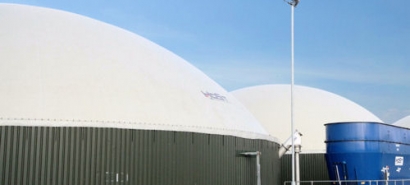
Chris Winward, chief commercial officer at the specialist energy from waste funder, explains that the updated manifesto reviews the industry’s progress from social, economic and environmental perspectives, and shares insight on the effect of government policy changes and COVID-19.
“As with most sectors, the pandemic has impacted energy from waste businesses. However, the sector has overwhelmingly proved its resilience. For example, most anaerobic digestion (AD) plants were able to continue producing gas or electricity throughout the lockdown period, despite some disruptions to the supply of the waste materials used as feedstock,” says Winward.
“We’ve also seen an extension to the renewable heat incentive (RHI) tariff guarantee until 2021, plus government consultations on future support for biogas. We hope the results from these will bring increased stability for the sector.”
As well as policy changes, 2020 has also seen new information emerge and increased understanding of the potential for AD.
“In March, ADBA reported that if AD receives the support it needs to reach its full potential, it will be able to process 170 million tons of waste for renewable energy and generate 8bnm3 biomethane, enough to heat 6.4 million homes,” says Winward.
“Another cause for optimism is that climate change and the potential for a green recovery have captured the attention of the general public, creating appetite for change like never before. Although this does not prevent objections to individual developments,” he adds.
“As an industry, we must continue to raise awareness of the benefits associated with energy from waste. This will be key to breaking down barriers, such as negative perceptions of the technologies, and should enable more new projects to gain traction if community stakeholders are on-side.”
Winward explains that Privilege Finance remains committed to three key goals; the UK being 100% self-sufficient in energy, zero food waste to be sent to landfill, and to exceed the UK target for net zero carbon emissions by 2050.

